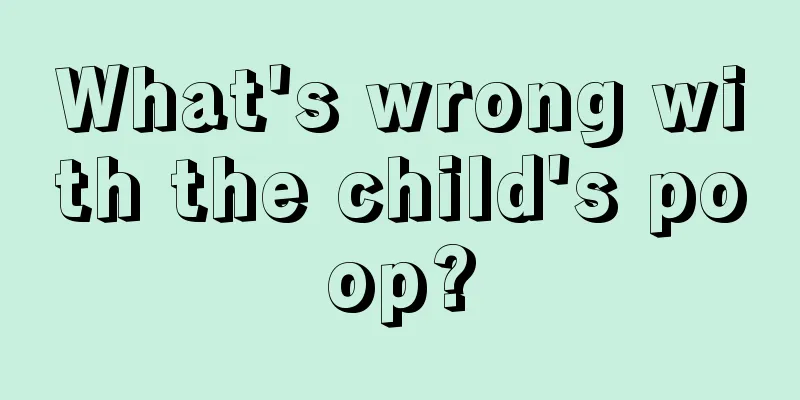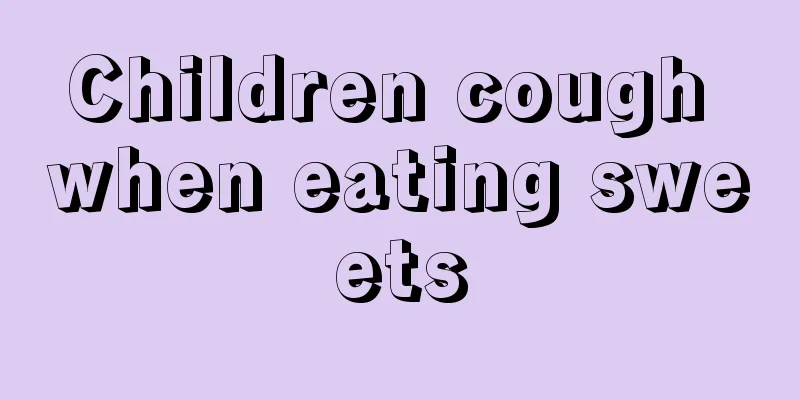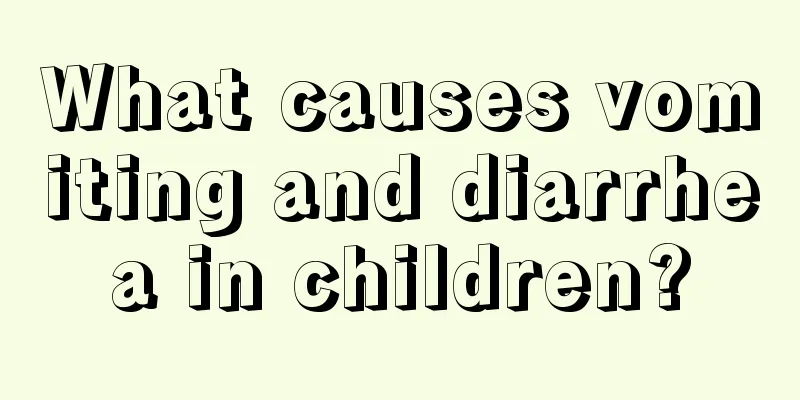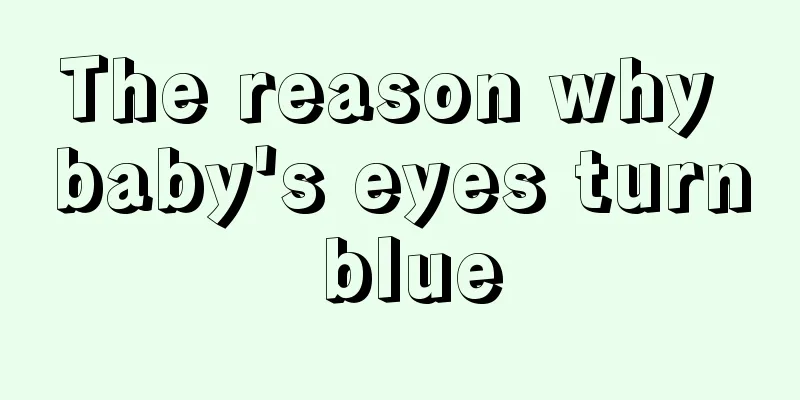How useful is early childhood education for children?
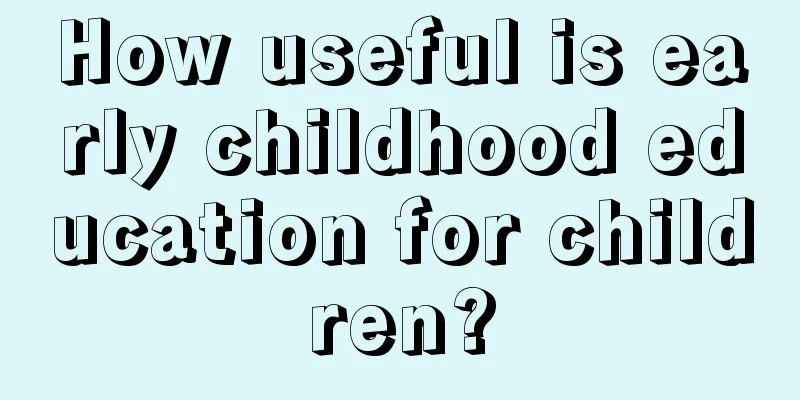
|
Today's parents pay more and more attention to early education, hoping that their children can win at the starting line. They wish they could cram all the knowledge into their children's brains as soon as they are born. In fact, early education is divided into two types. One is prenatal education when the fetus is still in the mother's womb, and the other is early education before the child goes to school, which is preschool education. So how useful is early education for children? Benefit 1: The baby is less afraid of strangers and can successfully get through the period of stranger anxiety. Normal babies go through a stage of being afraid of strangers during their development. Generally, babies start to feel shy at 5-6 months after birth, become gradually more obvious at 8-9 months, reach a peak at 12 months, and last for a period of time. Therefore, babies over 1 year old tend to be more shy. As children grow older, they have more interactions with adults and peers, and their shyness gradually improves. If your baby attends early childhood education classes between the ages of 0 and 1, interacts more with strangers, and creates a rich social environment, it can help him or her get through the period of stranger anxiety smoothly. Benefit 2: It helps parents discover their children’s nature and train their babies’ adaptability. Every child is born with a particular way of interacting with the world; this is his or her temperament. As we age, these innate tendencies will begin to manifest themselves. This child may be flexible and adapt easily to change; that child prefers a pre-arranged schedule. Observe how your baby might react and think about how you can adjust his environment to help him adapt successfully. Adults can figure out the environment that makes them most comfortable, but your baby relies entirely on your help. Respecting your baby's nature will help him reach his full potential. If a child attends early childhood education classes between the ages of 0 and 1, parents will be able to discover their baby's characteristics and nature among a group of children of the same age, thereby helping the baby develop the potential to adapt to the environment. Benefit 3: It helps to cultivate parent-child intimacy and promote the baby's social and language development. The social skills of babies aged 0-1 are basically limited to being with their relatives, because their main energy is focused on learning the skills they should master, such as grasping, crawling, and walking. How does a baby learn to understand his or her relationship with others? When does he or she start making friends? These are things that he or she learns from his or her parents. Parents are the baby's first playmates and friends, and his favorite people. With the help of your parents, your baby will gradually become familiar with other people and begin to enjoy being around them. This is when your baby's social skills begin to develop. The value of parent-child early education classes for 0-1 year olds lies in the word "parent-child". There is nothing happier and more worthwhile than learning and growing with your baby. Early childhood education programs provide a rich social environment to help children learn to share. As with learning other skills, developing social skills requires constant trial and error. At first, your baby may be reluctant to share his toys with others, but as he learns to care about others, he'll become a better playmate. As your baby develops intellectually, emotionally, and behaviorally, he'll gradually learn to use words to describe what he sees, hears, feels, and thinks. Researchers now know that long before a baby utters his first word, he is learning the rules of language and how adults use it to communicate. Early childhood education classes for children aged 0-1 years old provide a new language environment and help children learn to use language outside the home. |
<<: What is the reason for a heart murmur in a child's physical examination?
>>: How to cultivate children to be brave
Recommend
How to diagnose your baby's skin allergy to milk
Babies need to supplement milk nutrition as they ...
How can parents improve their children's memory?
Children's memory is not innate, but is relat...
Three-year-old baby's intelligence
The intelligence of a three-year-old baby has beg...
What is the reason for the child's yellow hair
Children's dry and yellow hair is mostly caus...
Can children drink milk powder when they have a fever?
Newborn babies mainly rely on breast milk for fee...
What is the treatment for hernia in children?
Many parents generally do not want to undergo sur...
Can children eat Astragalus?
As a common medicinal material in life, Astragalu...
What to do if your child has a stuffy nose?
Children have poor physical resistance during the...
Clinical manifestations of Helicobacter pylori in babies
Helicobacter pylori is a chronic source of infect...
Why does my baby's feet sweat but are cold?
When the body is hot, it will sweat, which is a v...
Can a four month old baby eat egg yolks?
I believe that every baby is the apple of the mot...
The child has a fever and pain around the belly button
Children's bodies are very fragile, so they a...
What to do if your baby lacks vitamins
Vitamins are an important nutrient in the human b...
Can sepsis in children be cured?
People with impaired immune systems or those with...
Why does my child's leg hurt?
Children will always experience physical pain dur...

